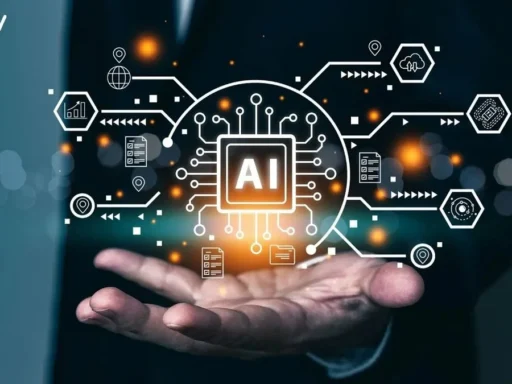How many hours have you lost chasing status updates?
Or reassigning the same task for the fifth time?
Project management isn’t broken—it’s bloated.
And I get it. Every team today is juggling more priorities, tighter deadlines, and constant change.
Manual tracking just can’t keep up anymore.
That’s where monday.com AI doesn’t just show up—it takes over.
Not to replace you.
But to clear the noise so you can focus on what actually moves the needle.
Real output. Real clarity.
What follows is a deep dive on how monday.com AI is flipping the script on project management.
Forget buzzwords. This is automation that thinks.
Dashboards that don’t just show data—they warn you.
Agents that handle tasks at 3 AM while you’re dreaming up your next big move.
Welcome to the shift.
The Rise Of Ai-Powered Tools In Project Management
Everyone talks about burnout.
Nobody talks about the inflation of shallow work tasks that cause it.
Legacy project tools make you the admin.
Organizing timelines. Manually assigning tasks. Chasing approvals across platforms.
All while trying to hit moving targets.
AI changes that.
Not in the way futurists promise flying cars.
In actionable ways—today.
Tools like monday.com AI automate what drains your time:
- Recurring task setups
- Project prioritization based on risk patterns
- Triggering next steps without you lifting a finger
Its biggest flex? Knowing what’s coming before you do.
monday.com isn’t new to the game.
It’s already embedded AI into the actual structure of how workflows happen.
We’re talking 10 million+ AI events in 2024 alone driving real results—not just cool demos.
The tool tracks how your teams work, then optimizes those patterns automatically.
No babysitting.
So what?
So hours come back to you.
So teams stop guessing what’s next.
So you go from “managing a project” to actually building one worth bragging about.
Redefining Project Management With monday.com Ai Integration
This isn’t about slapping AI onto a clunky platform and calling it innovation.
monday.com rebuilt its core with AI woven in.
Here’s what stands out:
| Feature | What It Actually Does |
|---|---|
| AI Blocks | Plug in logic to automate approvals, status changes, and updates instantly |
| Predictive Insights | Scan your past project data to flag risk before it becomes failure |
| Autonomous Agents | Run next steps, assign owners, and even generate project summaries |
One team lead at a university used monday.com’s intelligent automation during a curriculum revamp.
The result?
200+ subtasks were generated and assigned based on each faculty’s area of expertise.
Their 12-month roadmap finished four months early.
All tracked, adjusted, and analyzed by the platform—not a human coordinator.
Complexity didn’t go away. But friction did.
And with a no-code setup, this tech isn’t just for engineers anymore.
You get modular building blocks, not boilerplate tunnel vision.
And every feature is designed so you control the guardrails.
The Real Bottlenecks Ai Is Solving Inside monday.com
Here’s where this gets practical.
Most project failure isn’t caused by poor ideas—it’s death by 1,000 admin cuts.
AI inside monday.com is scrubbing out those cuts daily.
Let’s talk impact:
– By automating status updates, task assignments, and approvals, teams report up to 40% less time wasted in repeat actions.
– Predictive analytics kick in early—flagging overlaps, resourcing gaps, and timeline conflicts days before your inbox feels the pain.
You don’t manually plug this data in.
The system watches how your team behaves, reads historical patterns, then acts.
One automotive manufacturer avoided a $2 million workflow shutdown after the system flagged a component shortfall.
Six weeks early.
All because the sensors, the supply lead logs, and monday.com’s AI caught the trend.
While the managers slept.
That’s the shift.
From reactive firefighting to proactive clarity.
From dragging tasks across boards to having workflows rewrite themselves.
monday.com AI doesn’t just give you time back.
It gives you back your creative bandwidth.
You’re not here to babysit trackers.
You’re here to build solutions.
Revolutionizing Business Productivity with monday.com AI
What if the biggest dent in your productivity isn’t burnout or budget—but bottlenecks you didn’t even know existed? That’s where monday.com AI steps in, slicing through static workflows across industries like finance, education, marketing, and tech. The platform isn’t just digitizing task lists—it’s intelligently optimizing who does what, when, and why.
Streamlining Business Processes Across Sectors
Businesses chasing ROI often stumble not because their teams lack talent, but because they’re trapped in siloed processes. With AI-driven automation at the heart of monday.com, operational drag is throttled down hard. AI Blocks, for instance, can identify project slowdowns before they snowball, like reassigning resources mid-sprint when it detects scheduling conflicts.
What used to take a full-time project coordinator—gathering updates, sending nudges, mapping Gantt charts—is now handled by algorithms that apply predictive analytics across timelines and dependencies. Whether it’s a small HR team managing candidate pipelines or a global product team orchestrating launches, the outcome is the same: more speed, fewer misfires, better margins.
Companies using these tools report up to 40% less admin overhead. But it’s not just about time saved—it’s about knowing where to focus. monday.com AI constantly learns from historical data to model what successful projects look like in your context, then nudges teams toward those best practices.
Community and Global Innovation Through monday.com AI Insights
AI isn’t just for giants. monday.com AI makes it possible for a local food-share nonprofit in Vermont and a logistics academy in Nairobi to operate like Fortune 500 firms. With shared real-time boards, automated task tracking, and natural-language project summaries, cross-border collaboration feels as smooth as sitting side-by-side.
The ripple effect of these tools extends into policy too. Municipal planning committees have started leveraging monday.com dashboards to involve citizens in budget discussions—running sentiment analysis on community feedback submitted through calendars and forms. From co-creating education reforms to tracking vaccination campaigns, monday.com AI has become a silent but sharp facilitator in civic innovation.
monday.com AI as an Empowering Force for Startups and Enterprises
One tech founder in Austin summed it up: “We used to dream big and execute small. Now we dream, plug it into monday.com AI, and execute faster than we thought possible.” His team shaved a six-month go-to-market cycle down to nine weeks—by letting AI handle assignments, risk detection, and reporting.
That’s the real edge here: leveling the playing field. Startups don’t need to hire a bench of consultants or build custom ops stacks. Instead, they get access to enterprise-level AI tools that auto-prioritize tasks, alert managers of missed deadlines, and even suggest timeline resets when variables shift.
For companies chasing growth amidst chaos, monday.com AI turns uncertainty into rhythm.
Real-World Impact: monday.com AI Transforming Industries
Productivity sounds good in theory. But what does it actually do when stress, scale, and stakes collide? Across sectors, monday.com AI isn’t just a productivity tool—it’s a transformation platform.
Healthcare Sector: Improving Collaboration and Patient Outcomes
It started with a spike in missed appointments that a new telehealth startup couldn’t explain. Then monday.com’s built-in Campaign Manager AI identified it: patients were abandoning emails but responding to SMS within 28 seconds. Within three months of switching communication tactics, bookings rose 25%.
That same healthcare firm also used sentiment analysis to classify patient feedback in real time. One flagged complaint about a delayed prescription triggered a fast-track policy change. Across clinics now using monday.com, AI is quietly orchestrating better response systems, automating triage workflows, and learning from patient behavior to streamline care before crises hit.
Education: Empowering Educators Through Intelligent Project Tools
At a mid-sized US university, course redesign used to drag on for over a year. Faculty frustrations, scattered documents, and unclear milestones all contributed. That changed when the school deployed monday.com’s AI-powered Task Automator.
This feature broke the revamp into over 200 micro-tasks and sorted responsibilities based on lecturer expertise. Accreditation boards got live progress dashboards, while professors received nudges when priorities slipped. By project end, completion time had dropped from 12 months to 8.
For school leaders, the win was more than saved time—it was trust regained across departments previously divided by bureaucracy.
Technology and Development: monday.com AI for Agile Practices
Dev teams know the pain of chasing bug reports through endless threads. monday.com AI flips the script, proactively scanning for patterns based on historical tickets. When a new build pushed a known error, the system flagged it and recommended pulling affected users from alpha testing—before disaster could spread.
In another case, a growing B2B SaaS firm coordinated over five feature launches using monday.com boards combining update tracking and predictive timelines. Beta testers were looped in automatically as sprints concluded, collapsing feedback loops into hours instead of weeks.
Manufacturing and Supply Chain: Creating Resilient Networks
When an auto parts manufacturer faced a materials shortage, their scheduling team never saw it coming—monday.com AI did. By analyzing supplier pipelines and equipment sensor data, the system flagged a six-week delay in advance, triggering a contingency sourcing protocol.
The result? $2 million worth of production stayed on track. This isn’t wishful forecasting—it’s AI applied at the operational edge. Manufacturers now use monday.com not just for project planning but for live maintenance alerts, lead-time modeling, and shipment risk flags.
Changing Roles: Project Managers in the Age of monday.com AI
With AI stepping into the project management game, many ask: Do we still need managers? Turns out, we need them more—but differently.
Augmentation vs. Replacement: A Balanced Outlook
Instead of taking over, monday.com AI handles routine grind—status updates, deadline reminders, low-level prioritization. That gives human managers breathing room to lead: pitch strategy, mediate conflict, mentor teams.
The myth of AI-replacing-managers falls apart when tools like Project Analyzer spotlight risks but still need human judgment to decide whether to pivot timelines or double resource loads.
Benefits to Professional Growth in Managerial Roles
Project managers leaning into AI tools are getting promoted faster. A PMI study showed teams using monday.com AI see 45% quicker manager promotions. Why? Those leaders aren’t buried in reports—they’re coaching, strategizing, building momentum.
The job’s less about tracking and more about value creation. Managers now focus on creative problem-solving and driving alignment, not just checking boxes.
monday.com AI’s Role in Collaborative Leadership
Team leads using AI dashboards aren’t micromanaging—they’re actively empowering. Features like skill gap identification and performance trend analysis mean managers can spot who’s over capacity or underutilized and intervene early.
Dynamic feedback tools also help teams self-correct, fostering trusted, data-informed relationships. The outcome? Less friction, more flow.
The Ethical and Secure Foundations of monday.com AI
As more layers of work get automated, ethical design and data safety become non-negotiable. monday.com baked these into the foundation.
Security and Data Privacy Compliance
The platform meets enterprise-grade policies: think GDPR compliance, end-to-end encrypted boards, and role-based data access. Whether you’re a public school, a military contractor, or a small eComm store—your data stays yours.
Their flexible AI credits system scales affordably—from 500 free credits for freelancers to massive enterprise licenses—offering transparency without lock-in traps.
Ethical AI Governance and Transparency
Users can audit decision-making logic behind AI recommendations. Bias assessments run routinely, particularly in recruitment modules. Permissions are adjustable, making it easier to limit sensitive data exposure by role.
Unlike black-box tools, monday.com’s AI tells you what it’s doing and why—building trust without the guesswork.
Addressing the Accountability Challenges in AI Implementation
Decision-making algorithms now play roles in hiring, task distribution, and review tracking. But fairness isn’t a default—it’s a discipline. monday.com bridges this through workflow customization: if an AI suggestion seems off, teams can tweak triggers, adjust weighting, or disable it entirely.
Ethical transparency becomes a feature, not a footnote.
Breaking Down Barriers: monday.com AI Unlocking Global Innovation
Here’s the real deal—most people think AI is built for tech bros in Silicon Valley or big-budget enterprises. But what if I told you AI, specifically monday.com AI, is quietly rewriting the rules everywhere from Nairobi to Nashville?
Forget the glossy ads. The magic is happening where 4G is still a luxury and budgets are tight. monday.com is offering enterprise-grade AI tools without the six-figure consulting contract. That’s game-changing for startups in Mumbai, nonprofits in Lima, or a hustling educator in Kansas trying to build a curriculum revamp without burning out.
Affordable isn’t just a pricing tag. It’s a lifeline. With its free AI credits and no-code workflows, monday.com’s AI platform removes cost and skill as excuses. Teams spread across continents aren’t just communicating—they’re innovating, in real time. AI agents like the Campaign Manager and Task Automator keep the engine running while leaders focus on results, not updates.
In Lima, a community-led urban policy task force used monday.com AI to break a year-long strategic plan into 130 actionable items. No tech team, no consultants. Just a few local leaders using pre-built Playbooks, guided by AI to monitor progress, reassign tasks, and generate weekly reports for city council transparency.
A teacher in Johannesburg created a micro-grant tracking board for student-led social change projects using monday.com’s drag-and-drop AI widgets—no engineering required. One click gave her a dashboard showing who needed support and whose project hit critical impact milestones.
That’s not hype. That’s real-life, boots-on-the-ground AI adoption—led by the very people legacy software wrote off as “non-technical.”
The no-code setup means your team can go from idea to rolled-out project plan in one afternoon. Educators are mapping lesson plans. Parents are building schedules around care plans. Health teams are coordinating outreach without waiting on IT.
monday.com AI is proving something big: democratization isn’t idealistic fluff. It’s operational. Change is coming from the bottom up—if the tools are made accessible. That’s exactly what’s happening here.
Current Trends and Future Outlook for monday.com AI
Here’s the thing nobody tells you—clunky automation doesn’t scale. But monday.com AI isn’t trying to hack together “smart” checklists. It’s aiming straight at hyperautomation. That means AI that doesn’t ask permission every time—it’s learning your rhythm, predicting issues, and suggesting what’s next.
We’re talking real-time blueprint generation for your next project. Instead of building a workflow from scratch, monday.com’s AI drafts the framework, tags dependencies, and pulls in auto-generated copy from connected docs and emails. That’s how teams pivot faster when the market shifts under their feet.
The next gear? AI agents trained for your specific struggle—not just generic “task bots.” Whether you’re in legal, healthcare, or manufacturing, monday.com’s pipeline includes industry-specific agents tailored for compliance workflows, safety check automations, and onboarding SOPs.
- Legal teams get contract analysis bots that flag risk based on past clauses.
- Healthcare compliance officers get AI nudges when documentation deviates from regional guidelines.
- Construction managers get timeline reshuffle prompts based on weather forecasts + material delays.
It’s about time predictive and generative AI shook hands. That convergence is what separates reactive teams from agile ones. When your tech doesn’t just react but pre-empts—you stop putting out fires and start predicting storms.
From a market view, monday.com is setting the bar. Over 245,000 global customers didn’t get here by fluke. Their YoY growth is signaling something bigger: AI-powered project execution is fast becoming standard, not specialty.
Other platforms are watching. We’re already seeing no-code task builders and embedded assistants trickle into other tools, but monday.com is far ahead—because they didn’t bolt it on after the fact. AI was built into the core OS.
Translation? If your workflow platform doesn’t learn with you, evolve your strategy, and scale with your complexity—you’re already playing catch-up.
Strategic Recommendations for Teams Adopting monday.com AI
Let’s be blunt. If you roll out AI across your team without a plan, congratulations—you’ve automated your chaos.
The smartest teams aren’t just flipping the AI switch. They’re building internal competency. If your designer, operations lead, and marketing manager can’t all use AI tools independently, you’ve bottlenecked innovation through your IT gatekeeper.
Here’s the move: start with cross-role training. monday.com makes it simple with learning modules and ready-to-use templates that lessen the intimidation curve.
If your team includes tech-averse departments, use visual boards + pre-built AI actions to reduce resistance. You’ll see usage spike when people don’t feel like they need a computer science degree just to run a campaign.
Second step? Tailor your tools to the world you actually live in. That means embedding industry-specific integrations from the start:
- Startups: Build funding sprints directly inside task boards with investor follow-ups automated by AI reminders.
- Educators: Map curriculum goals across semesters and auto-check compliance with accreditation requirements.
- Healthcare teams: Use monday.com AI to schedule outreach and flag gaps in vaccination campaigns or patient follow-up based on regional data.
Then look ahead. Want to stay ahead? Start building AI into your retrospectives. Every time your sprint ends or campaign closes, monday.com can suggest how to improve next time using actual performance data.
That’s how feedback loops become future-playbooks.
Bottom line—AI adoption is not about checking some “digital transformation” box. It’s about building a system that predicts your friction points before your team feels them. The teams who treat this like navigation infrastructure, not just a dashboard—win. Fast.
So here’s your start:
Train for literacy. Customize for your lane. Iterate for change. Simple. Not easy. But monday.com AI makes it doable.







